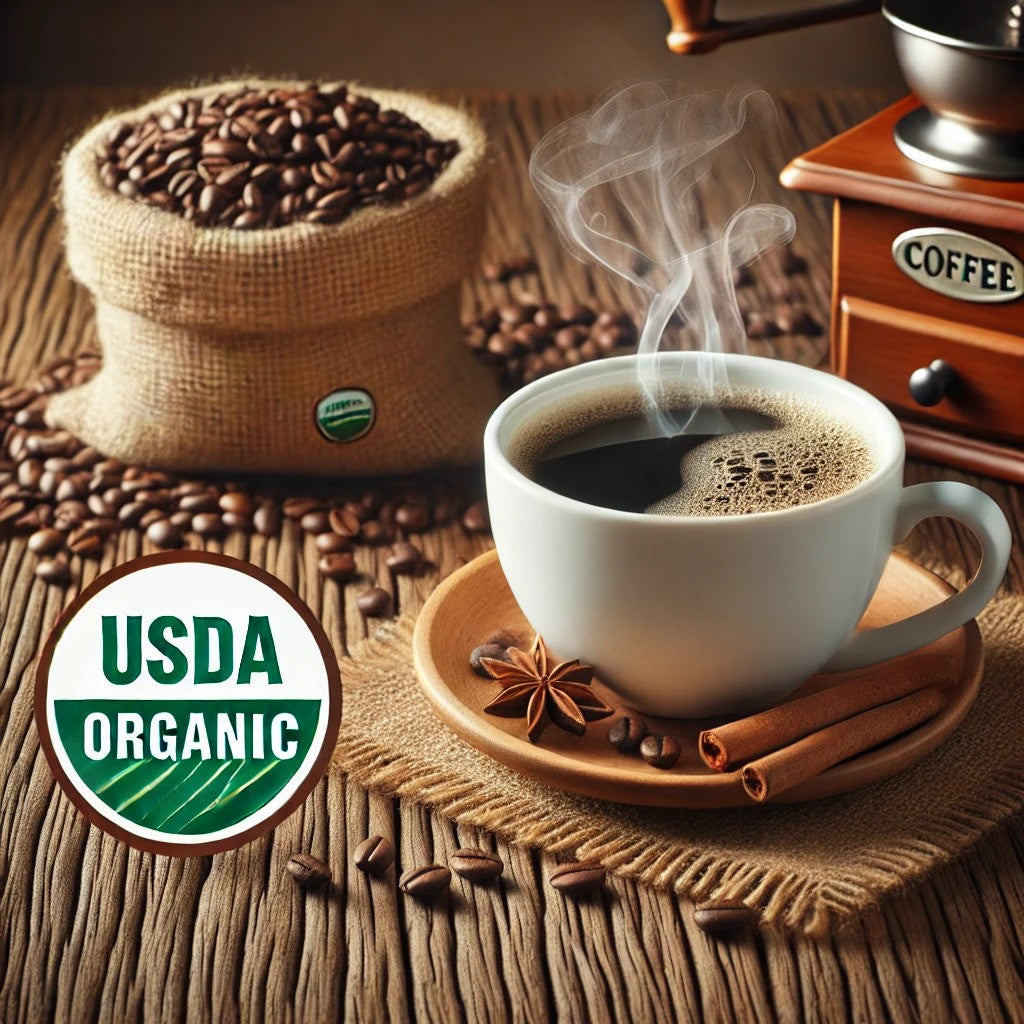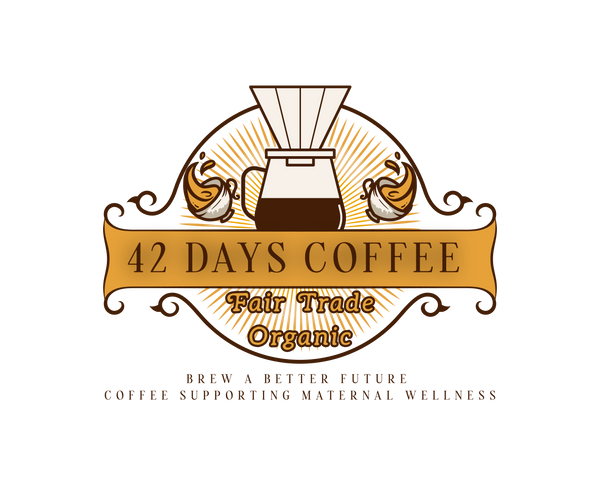
How Do You Know if Coffee is Organic?
Share
Hello coffee lovers! With so many labels out there, figuring out if your coffee is truly organic can feel like a puzzle. But don’t worry—I’m here to help you navigate the world of organic coffee so you can sip with confidence. Here, we’ll dive into what makes coffee organic, how to spot USDA certification, and why organic coffee can be a great choice for you and the planet.
What Does “Organic Coffee” Really Mean?
When we talk about organic coffee, it’s more than just a fancy label. Organic coffee is grown without synthetic fertilizers, pesticides, herbicides, or other chemicals. Farmers use natural practices like crop rotation and composting to nourish the soil and protect the plants.
At its core, organic coffee respects the land, protects the ecosystem, and promotes sustainable farming. When you choose organic, you’re not only avoiding certain chemicals but also supporting a process that cares for the environment.
Spotting USDA Organic Coffee: The Gold Standard
The easiest way to tell if your coffee is organic? Look for the USDA Organic seal. This official logo is the gold standard in organic certification in the U.S. Here’s what the USDA requires for coffee to earn this seal:
- No Synthetic Chemicals: Organic coffee must be grown without synthetic chemicals, which means no artificial fertilizers or pesticides.
- Non-GMO: The coffee beans can’t be genetically modified.
- Sustainable Practices: Organic coffee farms must follow specific practices that support the health of the soil and the surrounding environment.
Only certified producers who meet all USDA organic standards can display the USDA Organic seal on their products.
Chart: USDA Organic Certification Requirements
| Requirement | What It Means |
|---|---|
| No Synthetic Chemicals | No artificial pesticides or fertilizers used |
| Non-GMO | No genetically modified organisms in beans |
| Sustainable Practices | Farming methods protect soil and biodiversity |
Reading the Label: Organic vs. “Natural”
Sometimes, you’ll see terms like “natural” or “shade-grown” on coffee labels. While these sound great, they’re not the same as organic. Here’s a quick rundown:
- Organic: Certified and meets strict USDA standards.
- Natural: Has no standard definition in coffee; it’s a vague term.
- Shade-Grown: Refers to how the coffee is grown, often in shaded areas to support bird habitats, but it doesn’t guarantee organic practices.
Look out for the USDA seal or check with the brand to confirm whether it’s organic. For example, 42 Days Coffee only sources from organic farms, meeting USDA standards for every batch we brew. (Visit us at www.42dayscoffee.com to learn more!)
Why Choose Organic Coffee?
Let’s look at some reasons why organic coffee is a smart choice:
- Better for Your Health: By avoiding synthetic pesticides and chemicals, you’re sipping on a cleaner, healthier cup.
- Supports Sustainable Farming: Organic practices promote biodiversity and protect the soil and water.
- Improved Taste: Many coffee drinkers find that organic coffee has a richer, more nuanced flavor. With natural farming practices, the coffee can develop flavors unique to its region and soil.
To see just how big of a difference organic practices can make, take a look at this bar chart below comparing common aspects of organic vs. conventional coffee:
Bar Chart: Organic vs. Conventional Coffee
| Aspect | Organic Coffee | Conventional Coffee |
|---|---|---|
| Chemicals Used | None (natural alternatives) | High (synthetic pesticides) |
| Environmental Impact | Positive (sustainable farming) | Potentially negative |
| Health Benefits | Free from synthetic chemicals | May contain chemical residues |
How to Know You’re Choosing True Organic Coffee
So, you’ve got the basics—now how do you make sure your coffee really is organic? Here are a few tips:
- Check for the USDA Organic Seal: This is your quick-check solution. If you see the seal, you know the coffee meets strict standards.
- Research the Brand: Look into the brand’s sourcing practices. Ethical brands, like 42 Days Coffee, provide transparency on where their beans come from and how they’re grown. (Check us out at www.42dayscoffee.com!)
- Read the Fine Print: Some labels may say “organic” without certification. Be cautious—only certified organic coffee guarantees that USDA standards are met.
Sip Confidently with Organic Coffee
Choosing organic coffee is about making a thoughtful decision for your health, the environment, and your taste buds! By understanding USDA certification and knowing what to look for, you can enjoy every cup knowing it’s cleaner, better-tasting, and sustainably grown.
Want to experience the difference? Visit 42 Days Coffee to explore our collection of certified organic blends!

